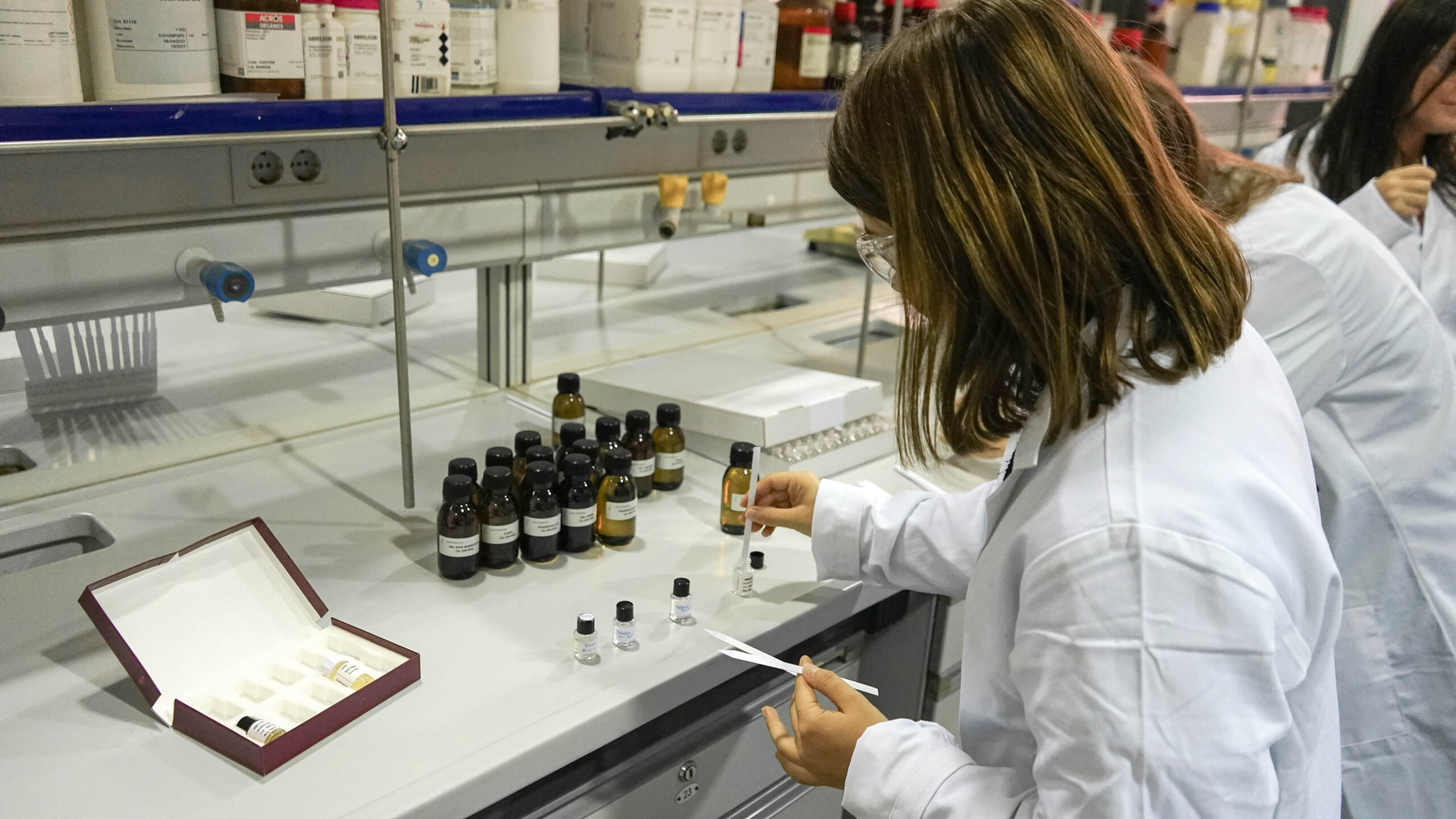IQS has recently launched the new Master’s Degree in Cosmetics and Fragrances to respond to the growing demand for highly qualified professionals in a constantly evolving and expanding industry.
IQS Launches the Master’s Degree in Cosmetics and Fragrances to Respond to the Needs of the Sector

The programme focuses on integrating advanced technologies in the development of cosmetic products. From researching and developing new ingredients to implementing advanced manufacturing technologies such as biotechnology, microencapsulation, artificial intelligence, and data analysis, the programme is designed to provide students with the tools needed to create more effective, safe, and personalized products.
“The new master’s degree offers a teaching programme designed in conjunction with Beauty Cluster, featuring classes taught by both IQS faculty and experts in the cosmetics and fragrances industry. The objective is to prepare professionals with the knowledge and skills needed to join a company in the cosmetics and fragrances sector upon graduation,” explains Dr Núria Oliva, the coordinator of the master’s degree.
This master’s degree consists of an intensive one-and-a-half-year programme, with a total of 90 ECTS credit hours and classes taught in Spanish along with certain subjects in English. Students will spend eight hours a week doing laboratory work during the first year, and will conduct their Master Thesis in the second year. The programme also includes mandatory in-company internships within the sector to further guarantee a comprehensive education for students.
IQS offers students a holistic approach that combines technical knowledge of dermatology, cosmetics, and fragrances with regulatory and sustainability aspects. In addition, students will learn specific business strategies for the industry and have access to more than 8,700 m² of laboratory and workshop space equipped with the latest technologies.
The main objective of the Master’s Degree in Cosmetics and Fragrances is to prepare professionals who are capable of designing new cosmetics and fragrances, developing manufacturing methods based on good practices, contributing to obtaining product certificates, and carrying out cosmetovigilance and safety monitoring tasks. To do so, the programme teaches students cross-disciplinary skills (analytical thinking and innovation, leadership and social influence, teamwork and creativity, etc.) and specific competences (in-depth knowledge of the industry, raw materials, control and analysis techniques, regulations, sustainability, project management, etc.).
An expanding industry
The cosmetics and fragrances industry in Spain experienced remarkable growth of 11.3% in 2022, with a turnover of 9.25 billion euros, according to data from STANPA, the National Cosmetics and Fragrances Association. This increase is largely due to product innovation and expansion in international markets as Spain has established itself as one of the top ten global exporters of beauty products.
Nonetheless, this is a complex industry in which increasingly informed and demanding consumers seek sustainable, organic, and personalized products. In a changing and constantly evolving industry, innovation is key to both meeting these expectations and being competitive.









